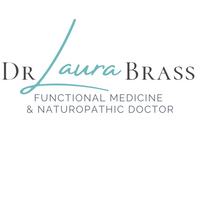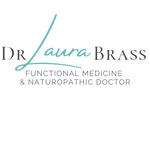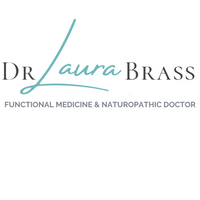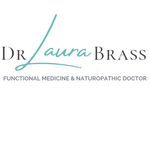The 10 Best Foods for IBS Symptoms

There are plenty of foods you shouldn't eat when you have irritable bowel syndrome (IBS), there is no denying that. You might focus solely on eating foods that won't make your IBS any worse, but what gets overlooked is a focus on what foods might actually help to make your IBS better.
The foods mentioned in this post were selected because of the fact that they are likely to have a positive effect on your digestive (as well as overall) health, without you having to have any worries that they are going to make your symptoms worse. Let's get started.
Lean Meats
Lean meats are mainly comprised of protein which is easily digestible and is not fermentable by gut bacteria.
Therefore you can eat any of the following with confidence:
- White meat chicken
- White meat turkey
- Pork
- Lean cuts of beef (sirloin, top round, eye round, bottom round)
Fatty cuts may contain pro-inflammatory fats or unhealthy toxins so avoid dark meat chicken or turkey, and cuts of beef that are marbled.
If you can, source animals that are grass-fed (beef), pasture-raised (pork), or free-range (poultry). These animals have been raised under optimal conditions, some people theorize that their fat content may actually be beneficial to your gut bacteria.
Eggs
Eggs are easily digested and make a nice "safe" choice for someone who has IBS. Eggs can be enjoyed a number of different ways like hard-boiled, soft-boiled, scrambled, or poached. Omelets and frittatas can be your go-to meal of choice and make a great option when eating out.
Please note that some people report a sensitivity to the proteins in egg whites, while others report that the higher fat content of egg yolks causes a problem. You may need to go through some trial and error to see what works best for you.
Salmon and Other Omega-3 Fish
Omega-3 fatty acids play an anti-inflammatory role within the body. Good fish sources of omega-3 fatty acids include:
- Anchovies
- Black cod
- Herring
- Mackerel
- Rainbow trout
- Sardines
- Wild-caught salmon
- Whitefish
Low-FODMAP Vegetables
Some people who have IBS tend to avoid vegetables because they have found that eating vegetables makes their symptoms worse. Vegetables are very good for your gut flora, and may be good for your IBS.
Ideally, you should start with the vegetables on this list and then slowly expand the vegetables that you eat:
- Bamboo shoots
- Bell peppers
- Broccoli
- Carrots
- Celeriac
- Corn (half a cob)
- Eggplant
- Fennel
- Green beans
- Parsley
- Parsnip
- Potato
- Scallions (green parts only)
- Squash
- Sweet potato
- Tomato
- Turnip
- Water chestnut
- Zucchini
During your testing phase of this list you may find that you are better able to tolerate vegetables that have been cooked, rather than eating them raw.
Low-FODMAP Greens
Your gut flora will be grateful when you finally eat more leafy greens. Leafy Greens are packed with nutrients and are not likely to cause any gut fermentation.
Leafy greens can be added to green smoothies, green juices, or made into delicious salads.
You may find that your body is less reactive if the greens are cooked. The easiest solution is to saute them with some olive oil.
Low-FODMAP greens:
- Arugula (rocket lettuce)
- Bok choy
- Collard greens
- Common cabbage
- Endive
- Kale
- Lettuce
- Radicchio
- Spinach (baby)
- Swiss chard
Low-FODMAP Fruits
Selecting fruits that are low in FODMAPs is a safer way to go. Don't eat too many in one sitting or you may overwhelm your body's ability to absorb the sugar in fruit without fermentation (and the gassiness that goes along with that!).
Low-FODMAP fruits:
- Avocado (limit 1/8 of a whole)
- Banana
- Blueberry
- Cantaloupe
- Grapes
- Honeydew melon
- Kiwi
- Lemon
- Lime
- Mandarin oranges
- Olives
- Orange
- Papaya (pawpaw)
- Pineapple
- Raspberry
- Rhubarb
- Strawberry
- Tangelo
Nuts
Nuts are an excellent source of fiber, protein, and anti-inflammatory omega-3 fatty acids. Nuts do contain unsaturated fat, a healthy form of fat is good for your gut flora and good for your IBS. You can enjoy nuts by the handful or in the form of nut butters.
Here are some low-FODMAP nuts:
- Almonds (limit 10)
- Brazil Nuts
- Hazelnuts (limit 10)
- Macadamia nuts
- Pecan
- Pine nuts
- Walnuts
Seeds
Chia seeds and flaxseed offer the most benefit for people who have IBS, particularly if you tend more toward the constipated side of things. Both of them are excellent sources of fiber and omega-3 fatty acids.
Sprinkle them on top of salads or oatmeal, or add them to your smoothies.
The following types of seeds are low in FODMAPs:
- Pumpkin
- Sunflower
Fermented Foods
Fermented foods contain many natural strains of probiotics—those good-for-you bacteria. Add some of these into your daily diet:
- Fermented drinks, such as kefir or kombucha
- Fermented vegetables, including sauerkraut and kimchi
- Yogurt (without excessive added sugar)
Bone Broth
Broth made from the bones of meat or fish are starting to enjoy some new-found attention due to a theory that the nutrients in these broths are good for the health of the gut flora and the intestinal lining.
Although research is lagging, you certainly cannot beat a warming cup of home-made soup as a way to self-soothe IBS symptoms.




Leave a comment